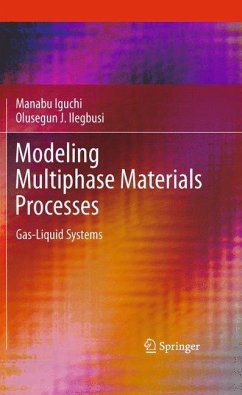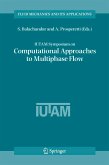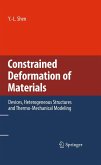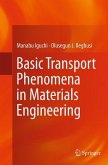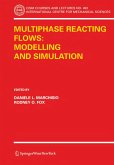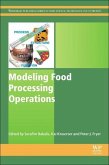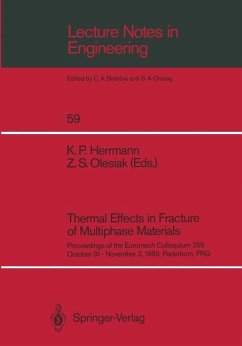Modeling Multiphase Materials Processes: Gas-Liquid Systems describes the methodology and application of physical and mathematical modeling to multi-phase flow phenomena in materials processing. The book focuses on systems involving gas-liquid interaction, the most prevalent in current metallurgical processes. The performance characteristics of these processes are largely dependent on transport phenomena. This volume covers the inherent characteristics that complicate the modeling of transport phenomena in such systems, including complex multiphase structure, intense turbulence, opacity of fluid, high temperature, coupled heat and mass transfer, chemical reactions in some cases, and poor wettability of the reactor walls. Also discussed are: solutions based on experimental and numerical modeling of bubbling jet systems, recent advances in the modeling of nanoscale multi-phase phenomena and multiphase flows in micro-scale and nano-scale channels and reactors.
Modeling Multiphase Materials Processes: Gas-Liquid Systems will prove a valuable reference for researchers and engineers working in mathematical modeling and materials processing.
Modeling Multiphase Materials Processes: Gas-Liquid Systems will prove a valuable reference for researchers and engineers working in mathematical modeling and materials processing.
From the reviews:
"Multiphase material processes have undergone tremendous advances in recent years. This text will provide a good exposure to graduate students undertaking this course. It deals with the systems in which liquid and gaseous phases co-exist. The relationship between the two phases has been emphasized through various validation examples. ... The authors have done well to include the review of nanoscale and microscale phenomena in material processing." (S. C. Rajvanshi, Zentralblatt MATH, Vol. 1220, 2011)
"Multiphase material processes have undergone tremendous advances in recent years. This text will provide a good exposure to graduate students undertaking this course. It deals with the systems in which liquid and gaseous phases co-exist. The relationship between the two phases has been emphasized through various validation examples. ... The authors have done well to include the review of nanoscale and microscale phenomena in material processing." (S. C. Rajvanshi, Zentralblatt MATH, Vol. 1220, 2011)

